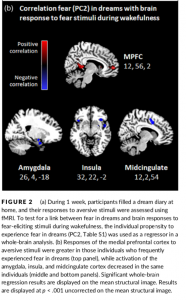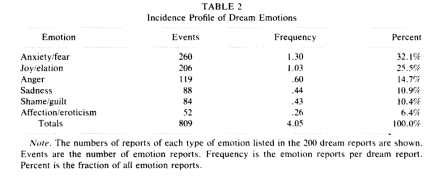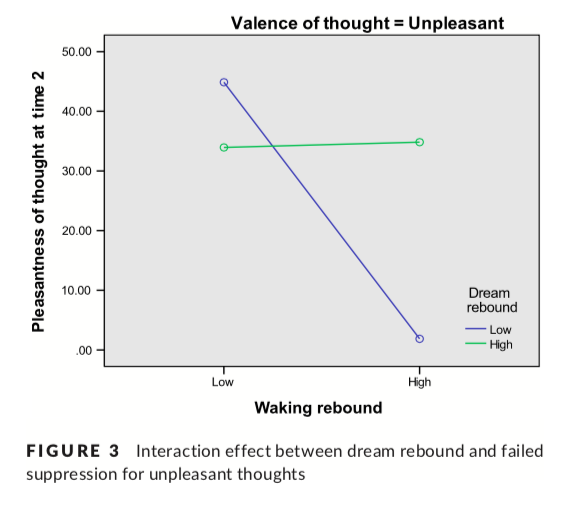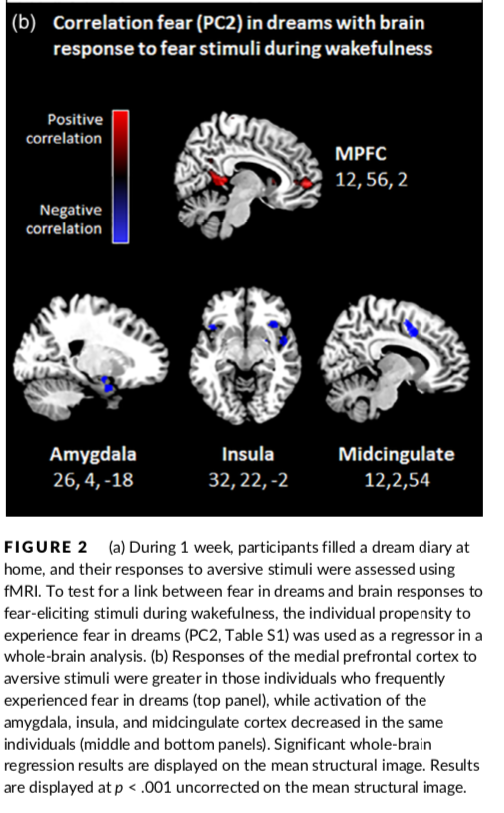
Recently I am trying to record my dreams every day, thinking of comforting myself by recording the beautiful moments in my dreams.
However, I found that I either dreamed of arguing with my boyfriend or missed an important meeting. The stimulus was to live and die with the murderer at an hourly speed——
It’s hard enough to be a social animal in life. Why on earth is it still so miserable in a dream?

When I was unwilling to search for the secrets of beautiful dreams every night, the scientist still told me that it’s good to have nightmares——
01. Wash and sleep, don’t think about dreaming
As one of the few people who can achieve a dream, I have to say that those who tell me “there is everything in dreams” really overestimate people’s control over dreams.
The research on the content of dreams has a long history. As early as the 1990s, neuroscientist Jane Merritt et al. (1994) analyzed the emotions that people experience in their sleep. They found that negative emotions such as anxiety, fear, anger, or sadness accounted for most of our dreams, while positive emotions such as pleasure and love accounted for only about 30% of our dreams.

Dreams full of negative emotions may be the normal state of our dreams.
At the same time, by analyzing people’s emotional changes in dreams, this study also found that not only negative emotions more often occupy our dreams, even those dreams that start with beautiful dreams will end up with negative emotions in half (Merritt et al., 1994) .
From this perspective, dreams can be said to be very realistic—the ups and downs of our lives are the same.
02. Having a nightmare is not necessarily a bad thing
If there is a choice, I think most people will want to dream every night, but scientists say that the nightmare we despise is actually of great value to our emotional health.
a. Emotional Scavenger
The reason for frequent nightmares may be that we suppress too many negative emotions in our daily lives (Malinowski et al., 2019). Many times, as social animals, we have to swallow the grievances and anxiety in our lives, and act in a positive and upbeat manner. And these unspeakable sufferings in life are likely to be released in dreams.
A study found that dreaming about the negative emotions that are usually suppressed can help us regulate our emotional state and also help us to be relieved of negative emotions (Malinowski et al., 2019).

The suppression of emotions on weekdays will reduce our sense of pleasure, and dreams provide a channel for venting depressed emotions and regulate our emotions to a certain extent.
b. Emotion simulation training
The study by Sterpenich et al. (2019) found that nightmares can reduce people’s fear and anxiety when facing reality. In this regard, the researchers explained that nightmares provide us with an opportunity to practice negative emotions, so when we encounter scary and anxious situations in real life, It is as if we have been “vaccinated” ahead of time, and we can respond better.

Those who experience fear in a nightmare, when faced with fear in reality, the brain regions that trigger fear appear more calm.
03. Nightmare, or an indicator of mental health
Nightmare itself is not a disease, but frequent nightmares may be a warning to one’s mental health. Both anxiety disorder and post-traumatic stress disorder (PTSD) may be the cause of frequent nightmares (Love, 2020).
Therefore, if we find that nightmares are frequent and affect our lives, the nightmares at this time are no longer just to help us adjust our emotions, but to warn us that we should pay more attention to our health status and you can also seek professional psychological help when necessary.
Finally, I hope everyone, whether the emotions in the dreams are good or bad, in reality, we can achieve a balanced life of mind and body~
Comments